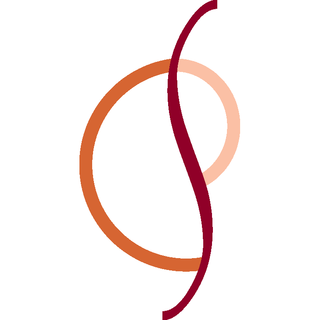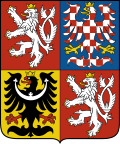Gender equality, also known as sexual equality or equality of the sexes, is the state of equal ease of access to resources and opportunities regardless of gender, including economic participation and decision-making, and the state of valuing different behaviors, aspirations, and needs equally, also regardless of gender.
Contributing to the establishment of human rights system in Africa are the United Nations, international law and the African Union which have positively influenced the betterment the human rights situation in the continent. However, extensive human rights abuses still occur in many sections of the continent. Most of the violations can be attributed to political instability, racial discrimination, corruption, post-colonialism, economic scarcity, ignorance, illness, religious bigotry, debt and bad financial management, monopoly of power, lack/absence of judicial and press autonomy, and border conflicts. Many of the provisions contained in regional, national, continental, and global agreements remained unaccomplished.

The European Institute for Gender Equality (EIGE) is the European Union’s agency for gender equality.
Human rights in Croatia are defined by the Constitution of Croatia, chapter three, sections 14 through 69.
Human rights in Serbia are a product that reflect the country’s social norms, local political processes, state and legal history, and foreign relations with parties such as the European Union. Like human rights more generally, these rights are protected through the ongoing incorporation of global norms into legal systems and enforcement of the law, with the goal of holding duty-bearers accountable for their enactment and redress for victims of their violation. Recent reports by Human Rights Watch note persistent flaws with systemic exclusion of the Roma minority population, harassment of the press and faulty protection of asylum seekers.
Human rights in Cyprus are protected by the constitution of the Republic of Cyprus.

Human rights in Austria are generally respected by the government; however, there were problems in some areas. There were some reports of police abuse and use of unjustified force against prisoners. Antisemitic incidents, including physical attacks, name-calling, property damage, and threatening letters, telephone calls, and Internet postings occurred during the year. There was some governmental and societal discrimination against fathers, Muslims and members of unrecognized religious groups, particularly those considered "sects". There were incidents of neo-Nazi activity, rightwing extremism, and xenophobia. Trafficking in women and children for prostitution and labor also remained a problem.

The Center for Policy Studies (CPS) is an academic unit within Central European University, dedicated to improving the quality of governance in Central and Eastern Europe and the former Soviet Union by the provision of independent public policy analysis and advice.
There are several social issues in Armenia including poverty, high unemployment rates, corruption, and inadequate public services.

According to the last census from 2021, there were 67,179 persons counted as Romani people in Slovakia, or 1.23% of the population. However, the number of Roma is usually underreported, with estimates placing the Roma population at 7–11% of the population. Thus the actual number of Roma may be over half a million.
Iceland is generally considered to be one of the leading countries in the world in regard to the human rights enjoyed by its citizens. Human rights are guaranteed by Sections VI and VII of Iceland's Constitution. Since 1989, a post of Ombudsman exists. Elections are free and fair, security forces report to civilian authorities, there is no state violence, and human rights groups are allowed to operate without restriction. Religious freedom is guaranteed, and discrimination based on sexual orientation is illegal.

According to international observers, human rights in Belgium are generally respected and the law and the judiciary provides effective means of addressing individual instances of abuse. However, some concerns have been reported by international human rights officials over the treatment of asylum seekers, prison overcrowding and the banning of full face veils. Capital punishment is fully abolished and a prohibition on the death penalty is included in the Constitution of Belgium. Belgium was a founding member of the European Union and the Council of Europe and a signatory to the European Convention on Human Rights. Belgium has minimal issues regarding corruption and was ranked 15 out of 167 countries surveyed in Transparency International's 2015 Corruption Perceptions Index.

The Czech Republic provides a wide variety of civil rights to female citizens and Czech women have a long history of actively participating in Czech society. However, women in the Czech Republic continue to experience gender discrimination, particularly in the workforce and political arena.

Women in Bulgaria refers to women who live in and are from Bulgaria. Women's position in Bulgarian society has been influenced by a variety of cultures and ideologies, including the Byzantine and Ottoman cultures, Eastern Orthodox Christianity, communist ideology, and contemporary globalized Western values.
The Gender Equality Index is a tool to measure the progress of gender equality in several areas of economic and social life in the EU and its Member States, developed by the European Institute for Gender Equality (EIGE). These areas are summarised into a hierarchical structure of domains and sub-domains. The Index consists of 31 indicators and ranges from 1 to 100, with 100 representing a gender-equal society. The aim of the Index is to support evidence-based and informed decision-making in the EU and to track progress and setbacks in gender equality since 2005. Additionally, it helps to understand where improvements are most needed and thus supports policymakers in designing more effective gender equality measures.

Gender equality in Azerbaijan is guaranteed by the country's constitution and legislation, and an initiative is in place to prevent domestic violence. Azerbaijan ratified a United Nations convention in 1995, and a Gender Information Center opened in 2002. A committee on women's issues was established in 1998.

Human rights in Lithuania have been the subject of much coverage. Lithuania scores 91 out of 100 in 2019 report by Freedom House, which classifies the country as "free", with high rankings in civil liberties and political rights. In particular, Lithuania ranks 30th among 180 countries, well above the world's average level in press freedom, and achieves a full score in freedom of assembly and nongovernmental organisations. However, there are concerns regarding children's welfare, domestic violence, discrimination against minorities including the Roma, Jews and LGBTI people, as well as poor treatment of prisoners. The Constitution of Lithuania guarantees the protection of human rights.

Portugal is generally considered as successful in upholding the civil liberties and protecting the human rights of its citizens. Portugal has proved to be determined in promoting and respecting human rights at an international and national level. The country's minister of Justice as of September 2018, Francisca Van Dunem, said that Portugal has had "a good track record" on human rights but violations still do persist.
Human rights in Norway protect the fundamental rights of all persons within the Kingdom of Norway. These rights are safeguarded by Chapter E of the Constitution of Norway or Kongeriket Norges Grunnlov, as well as the ratification of various international treaties facilitated by the United Nations. The country maintains a dedicated commitment to human rights and was the second country to ratify the European Convention on Human Rights.
Human rights in Hungary are governed by the Constitution of Hungary, laws passed by the National Assembly, and oversight of international organizations such as the Council of Europe. Human rights groups such as Amnesty International and Human Rights Watch have raised concern for the status of human rights in Hungary under the rule of Viktor Orbán and the Fidesz party since 2010.











